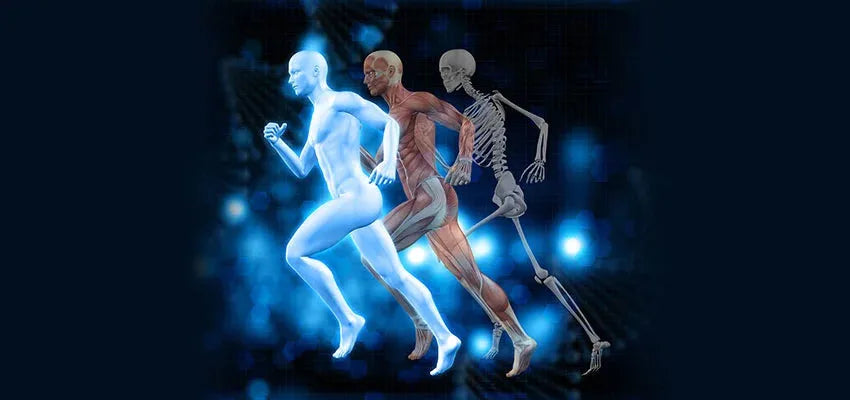
Stress accelerates the aging process
Stress accelerates the aging process
15 November 2023
Stress is referred to as an emotional or physical feeling of tension. Any circumstance or thought that causes someone to feel angry, frustrated, or nervous can trigger stress.
Aging and stress are both natural occurrences in life. Stressful situations may not have much of a negative impact on a person’s body and mind when they are young and resilient. An individual's immune system weakens with advancing age and there is an excess of circulating worn-out white blood cells and a deficiency of fresh, "naive," white blood cells to fight off invaders in the body. Thus, when the body's natural defenses gradually start to deteriorate, it becomes harder to handle stress and anxiety.
Aging can be stressful due to certain life changes like retirement, coping with a loved one's passing away, declining health, and losing independence. These changes can all be particularly confusing and is bound to take a toll on our physical and mental well-being.
Types of stress
The body adjusts to new situations with the help of stress reactions. Types of stress include:
Acute stress: This type of stress goes away quickly and is temporary. Individuals can experience it when they hit the brakes hard, argue with their partner, or cycle down a challenging slope. It aids in the management of risky circumstances. Additionally, it can also happen when someone does something exciting or new.
Chronic stress: This type of stress lasts for several weeks or months. Individuals having monetary issues, challenges in marriage, or job problems might be suffering from chronic stress. If stress levels are not kept in check, it could lead to health problems.
Effects of stress on the body
Our body releases hormones (cortisol, adrenaline, and norepinephrine) in response to stress. These hormones cause the muscles in the body to tense up, quickens the pulse rate , and signals the brain to become alert. These responses are beneficial in helping individuals to manage a stressful situation on a short-term basis.
Even when there is no threat, chronic stress causes the body to remain unduly alert. This increases the risk of developing health issues over time, such as:
- High blood pressure
- Heart disease
- Diabetes
- Obesity
- Depression
- Anxiety
- Acne
- Menstrual problems
The link between stress and accelerated aging
The capacity of the brain to control the levels of stress hormones declines with age. This causes both hormonal imbalances and higher stress levels in older adults. A person who experiences chronic stress may adopt an unhealthy lifestyle, which results in additional health problems.
Stress has a cellular impact on the body as well. Over time, telomeres, which serve as protective "caps" at the ends of chromosomes, will inevitably wear out. The pace of aging is indicated by the rate of telomere shortening. Telomere shortening and aging can be potentially accelerated when the body is under stress. Shortened telomeres also increase the risk of diabetes, cardiovascular disease, cancer, and Parkinson’s disease.
Ways to manage stress
Managing stress can improve the overall health of an individual and slow down the process of aging. There are numerous ways for managing stress, such as:
- Identify stressors: Finding the source of stress, for instance, work, money, relationship, health, etc. is the first step towards managing it.
- Have a work life balance: Make time to work on your projects and objectives (such as work deadline, errands). Remember to schedule time for enjoyable activities such as listening to music, exercising, playing with a pet, reading a book. The daily practice of unwinding and recharging, even for a short while, reduces stress.
- Have a healthy social life: Social interaction can help improve one's emotional, physical, and mental health. It's crucial to have a positive, healthy relationship with your family, friends, and coworkers. Loneliness and isolation increase the risk of many physical and mental health conditions like hypertension, obesity, depression, dementia, etc.
- Take part in regular physical activity: Even a brief yoga session or walking for about 30 minutes every day can be calming. Being active is necessary for healthy aging.
- Eat a well-balanced diet: Consuming a good nutritious diet and being adequately hydrated is necessary to slow down the aging of cells (reduced risk of telomere shortening).
- Get good-quality sleep: Sleep is necessary to rest and recharge our bodies. Poor sleep can have an impact on the individual’s mood, judgment, and memory. Chronic sleep deprivation can contribute to health issues such as obesity and high blood pressure.
- Ask for help when needed: Consult a counselor or therapist if feeling overwhelmed with stress. They can aid in determining what may be the cause of stress and provide useful, practical guidance on how to deal with it.
Excessive stress leads to energy depletion, poor digestion, mental health issues, disturbed sleep and exhaustion, that is harmful for the body in the long run. Although stress cannot be prevented, there are steps that can be taken to reduce daily stress. Avoid smoking, using tobacco, excessive amounts of caffeine, alcohol, and drugs. Practicing meditation, maintaining physical and mental health with a healthy diet and exercise routine, getting enough sleep, engaging in positive, interpersonal relationships, participating in leisure and self-care activities can all aid in the management of stress and slowing down the aging process. Thus, it is recommended to seek expert consultation and obtain assistance to promote physical and mental well-being.


